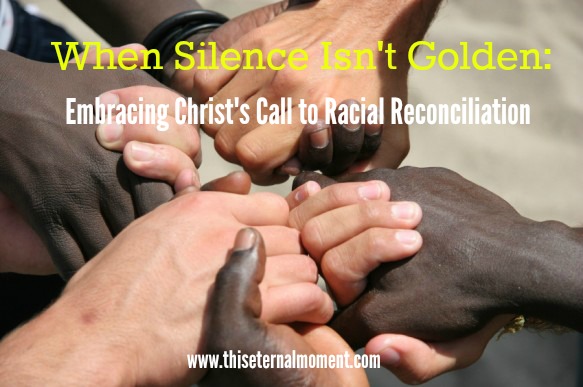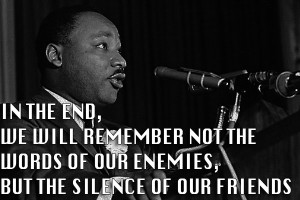
I turned on the news after hearing that major riots were going on in our neighboring city of Baltimore, MD. I watched, horrified, at the images and videos showing a city going up in flames due to injustice, abuse of control, anger, and pain.
As I watched my Facebook news feed fill with articles, opinions, and commentary, I felt the need to quiet myself from all the noise around the media regarding this event and process what is going on in our nation.
One thing I understand: What it is like to be a mother and worry about your children’s safety. I want to understand what the mothers of Baltimore are going through right now.
I weep when I consider the pain, anger, and fear that would come to me if I knew my children were being viewed with suspicion and even called out as criminals and other horrible names, labeled and stigmatized due to the color of their skin or the neighborhood they live in.
Over the last week, I have found myself pondering silently in prayer, “Lord, what can I do?” It’s easy to feel helpless, tongue-tied, and stifled into silence by the surge of opinions that come crashing at us all around.
But this is not a reason to be quiet. When injustice is happening around us, the Church of God needs to not only say something but do something about it.
It may be easy to justify inaction with the “That’s going on other there – not here” approach, which would be totally wrong.
My two oldest daughters learned this year about the Supreme Court ruling in Brown vs. Board of Education that make segregation by race unconstitutional. And yet segregation and racism cannot be snuffed out by law. It must be eradicated by confession of sin, personal human choice and loving interactions on a one-on-one basis.
As my pastor pointed out at church a few Sundays ago in an impassioned plea to our congregation, we can’t confuse ethnic diversity with racial reconciliation. We can live cordially across the street, work together in the same office, have our children in the same school or sports team, and yet still fail to understand each other and care for one another in deeper, life-giving ways.
Racial Reconciliation: A Calling of All Who Believe
Racism is no new issue. It has been a problem from the beginning and even the early church had it’s fill of “Jew vs. Gentile” issues. But Christ has made it clear that He died to unite all flesh under the banner of His cross of atoning love and forgiveness. His blood shed reconciles not only man to God but man to man.
The Word of God is replete with passages that emphasize the need for reconciliation and that God is not a God of elitism or favoritism based on gender, race, nationality, or social class.
“Then Peter began to speak: “In truth, I understand that God doesn’t show favoritism, but in every nation the person who fears Him and does righteousness is acceptable to Him” Acts 10:34-35.
“…and through him to reconcile to himself all things, whether on earth or in heaven, making peace by the blood of his cross” (Colossians 1:21).
“This is my command. Love one another as I have loved you” (John 15:12).
What We Can Do to Live a Life of Racial Reconciliation

I’ve thought a lot these past few weeks about what I can do to advance the cause of racial reconciliation in our nation. Each of us play a part either for or against this cause.
Here are some things that I have come up with:
1) Love My Neighbors – this doesn’t mean simply acknowledging them or being cordial or kind or even doing nice things for them (although all of that is great).
In this regard, it means going out of my way to seek to understand what others are going through and to engage in a much-needed dialogue with those who are hurting and in pain.
It also means intentionally pursuing relationships with those who are different from me and learning to appreciate and enjoy those differences more fully.
2) Speak Out Against Injustice – Martin Luther King Jr. said that “injustice anywhere is a threat to justice everywhere.” As Christians, we are to love justice and pray for God’s justice to reign in our lives and our nation.
3) Educate My Children – I grew up in a predominately white school and didn’t have an African-American friend until I was in college. This is not something I can change. I can, however, seek to make things different for my children. We are blessed to live in a diverse neighborhood. We are seeking to educate them about the history of racial pain and inequality in our nation and encouraging them to make a difference in their generation.
I love the fact that my girls have several friends who are a different color skin than them and that they are appalled by the fact that anyone could view their sweet friends with hostility or superiority based on their skin color. “It’s just wrong,” my four-year old says.
What can you do, friend? Who can you reach out to in your sphere of influence and stand poised with a humble, listening ear, seeking to understand rather than to be understood?
Christ died to reconcile us to Himself and to our neighbors – ALL of them.


Please note: I reserve the right to delete comments that are offensive or off-topic.